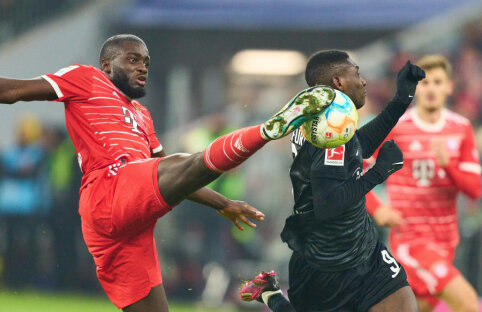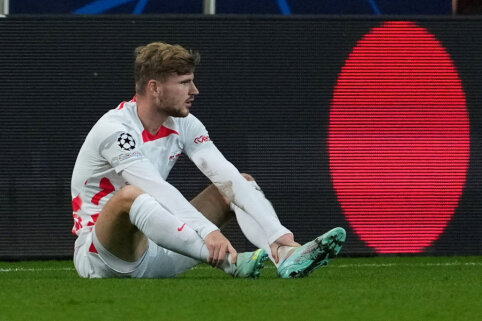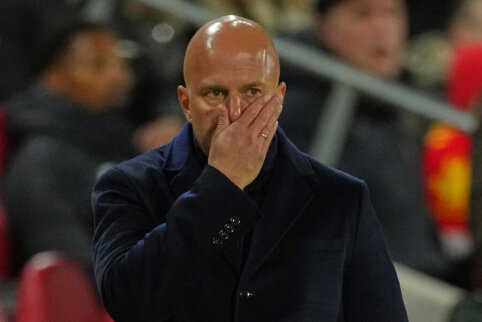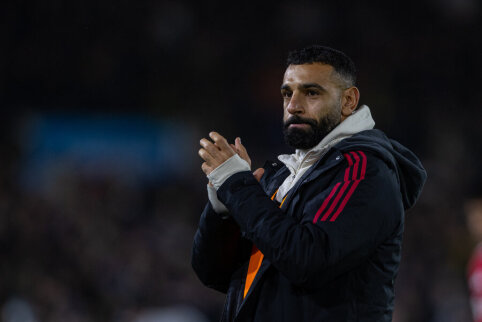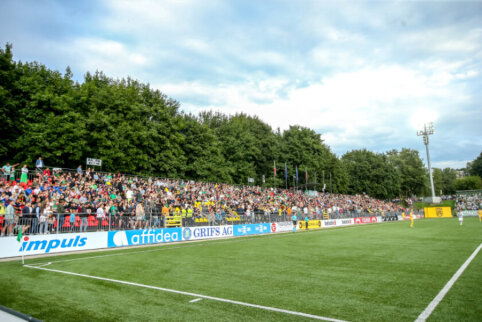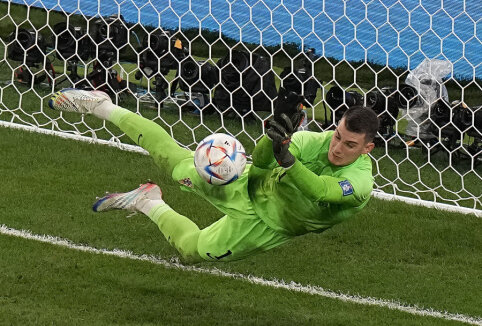 © EuroFootball.com
© EuroFootball.com
To improve security and order at stadiums, on Wednesday in Kaunas, members of the Lithuanian Football Federation (LFF) and "General Financing A League" clubs discussed and exchanged proposals.
Preventing incidents
During the discussion, which also included representatives from the Police Department and the Kaunas District Police Headquarters, issues such as the coordination of security services, maintaining public order plans, discussions about hooliganism at stadiums or in their vicinity, the use of pyrotechnic devices and alcohol consumption, as well as the necessity of emergency medical assistance during matches were addressed.
There was also discussion on how to involve volunteers who could help supervise public order at the stadium and contribute to the organization of security in other ways. Several clubs participating in the Lithuanian championship are already using the services of volunteers.
The participants of the meeting shared their observations and suggestions. "We hope that such discussions will help avoid misunderstandings and incidents during football matches in the future," said LFF President Julius Kvedaras.
The LFF decided to submit a proposal to the clubs to the Department of Physical Education and Sports regarding the legal framework regulating the entry of unauthorized persons onto the field during matches for improvement.
It was also agreed that starting from the next round of the "General Financing A League" matches, hosts will be required to ensure emergency medical assistance at the stadium. In the past, emergency medical assistance was mandatory during international matches.
Importance of principles
Last week, LFF leaders met with police representatives. This time they were invited to a meeting with the clubs. The active partnership between the LFF and the Police Department has been ongoing since 2005 - police representatives, together with the LFF, carry out various prevention projects, advise, and teach how to behave during sports events.
Ingrida Lamanauskienė, chief specialist of the Public Order Division of the Police Department's Public Order Department of the Police Department, familiarized the participants with the activities of the institution and presented proposals to the clubs for smoother cooperation.
According to Remigijus Stukas, Head of the Public Order Division of the Kaunas County Police Department, "it is important that clubs apply a uniform security system during matches and exchange information about unwanted individuals at the stadium, as well as cooperate on other security issues."
